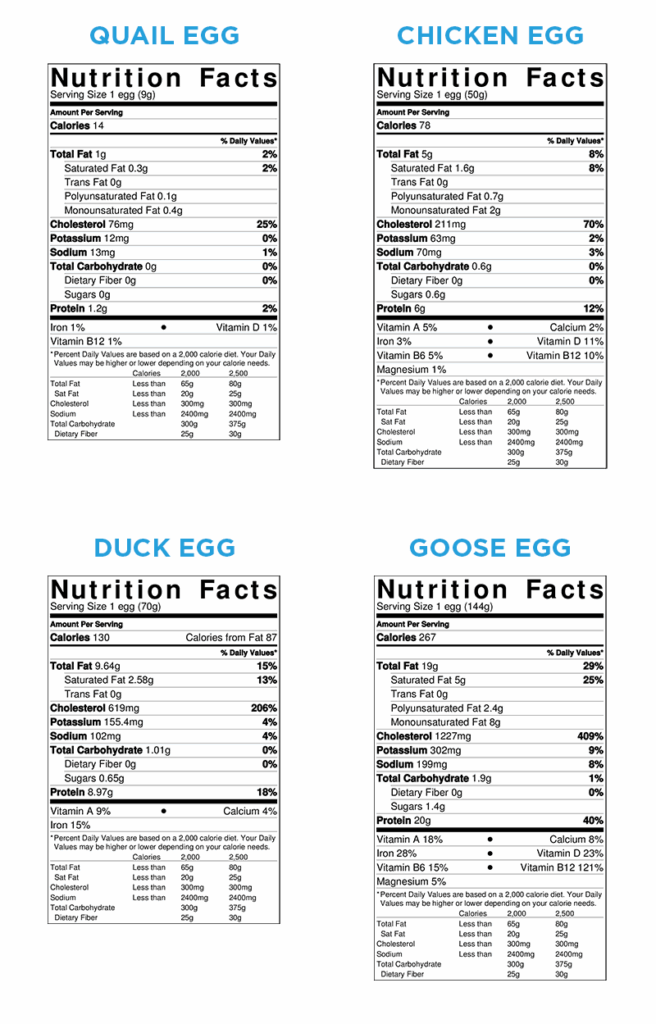Duck eggs are a nutritious alternative to chicken eggs, offering a unique flavor and a range of health benefits. One of the key advantages of duck eggs is their nutritional content. They are rich in protein, vitamins, and minerals, making them an excellent choice for those looking to boost their overall health.
Compared to chicken eggs, duck eggs are larger and contain more nutrients per serving. They are particularly high in vitamin B12, which is essential for nerve function and DNA synthesis. Duck eggs also provide a good source of selenium, which is important for thyroid health and immune function.
Duck Eggs Nutritional Information
Nutritional Breakdown
One large duck egg (70 grams) typically contains:
- Calories: 130
- Protein: 9 grams
- Fat: 9 grams
- Cholesterol: 619 mg
- Carbohydrates: 1 gram
- Vitamin A: 15% of the Daily Value (DV)
- Vitamin B12: 64% of the DV
- Vitamin D: 23% of the DV
- Riboflavin: 30% of the DV
- Selenium: 35% of the DV
These nutritional values make duck eggs a nutrient-dense food that can contribute to a balanced diet. They are especially beneficial for individuals who may have specific dietary needs or are looking to increase their intake of certain vitamins and minerals.
Incorporating Duck Eggs Into Your Diet
There are many ways to enjoy duck eggs, from simply frying or boiling them to incorporating them into baked goods or omelets. Their rich, creamy texture makes them a versatile ingredient that can enhance the flavor and nutritional value of a variety of dishes.
When purchasing duck eggs, look for organic or pasture-raised options to ensure the highest quality and nutritional content. Incorporating duck eggs into your diet can be a delicious way to boost your overall health and well-being. So why not give them a try and experience the nutritional benefits for yourself?
